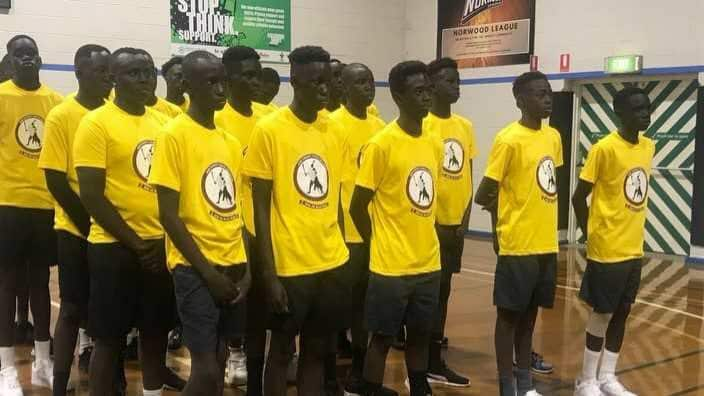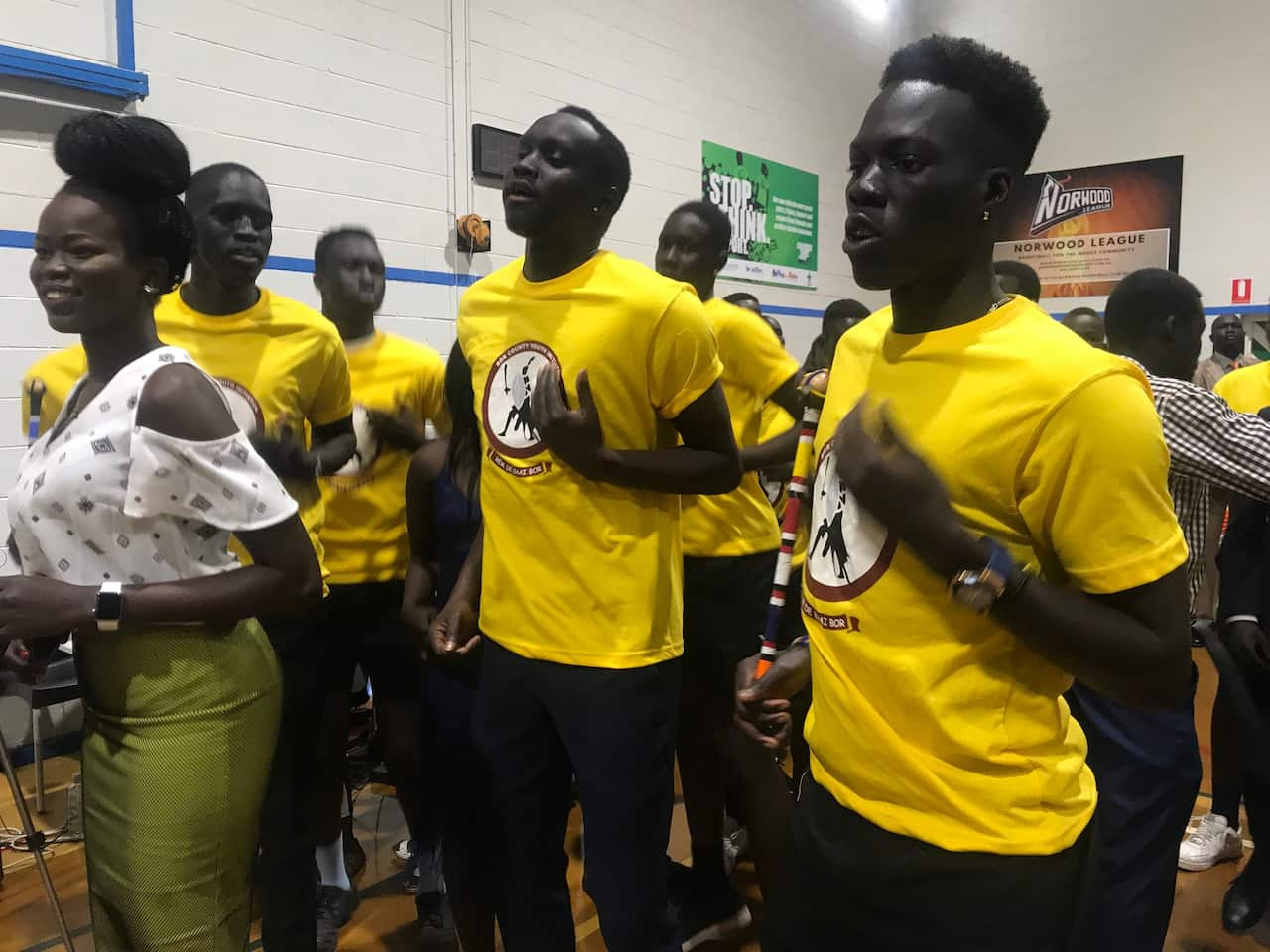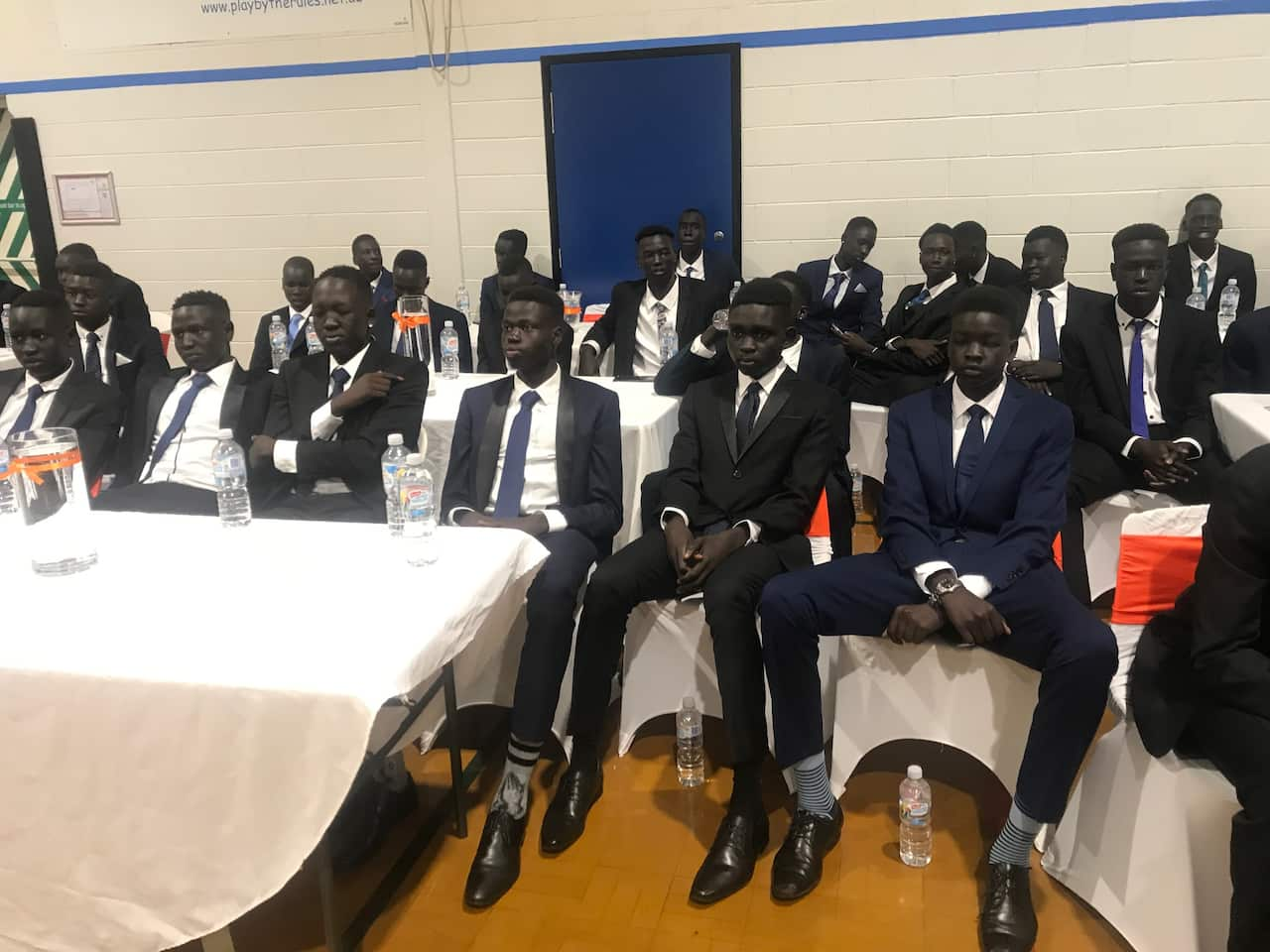In a north Adelaide barbershop, 40 boys from the Dinka Bor community of South Sudan are taking turns to have their hair cut.
It's a symbolic cut, severing the link to childhood.
For Chuereag Deng, in his late teens, it's also a happy occasion. He speaks with the deep voice of a young man, yet in his culture, he’ll be considered a boy until he undergoes an initiation.
“I’ve always wanted to become a man,” he tells SBS News. “To be called a boy, I feel disrespected.”
I’ve always wanted to become a man
The initiation ritual will take three days. Along with the haircut, males aged between 14 and 21 will receive lessons and lectures from senior members of the community. They'll be told about the new responsibilities they'll have in the family home.
“I might have to be the one sending money back to Africa,” Chuereag says. “Or to help people out … just have a lot of say, and a lot of power.”
'You’re still a boy'
More than 10,000 people who speak the Dinka language live in Australia, according to ABS data released to SBS in June. Within the Dinka community there several sections including Bor, Twic, Nyarweng and Hol.
During initiation, the Dinka Bor boys are taught traditional dances and songs so they can be the ones to run community events in the future. Some have travelled interstate for the occasion.

Initiation also opens up the possibility of dating.
Malang Ajang, a young women’s leader, says she wouldn’t consider going out with someone who hadn't been through the process.
“If a boy comes to you and says he wants to know your name, he wants to date you, something like that, you’re going to say, 'you’re still a boy, so I can’t say anything with you',” the 21-year-old says.
Apart from a handful of families who had the money to send their children to relatives in South Sudan to be initiated, it's been a long time since many of the boys from the Dinka Bor community have had the chance to go through a ceremony.
'There is something missing'
Daily life changed dramatically in southern Sudan in 1983 as it descended into a bloody civil war. Cultural rites were set aside and for many Dinka Bor, a life or death struggle took over.
Along with millions of others from the region, Akoy Wut Lual fled to Kenya with his mother and siblings. Now 34, he says he wanted to be initiated but it wasn’t possible in the sprawling Kakuma refugee camp where his family made their new home.
“I missed the opportunity because I was not in my home country, or in my village,” he says.
He’s far from alone. An entire generation missed the opportunity to officially come of age.

Despite that, he laments the fact that he is still, according to the strictest interpretation of culture, a boy.
“I feel, honestly, that there is really something that is missing in my life.”
He says it's too late for him to take part in the Adelaide ceremony, which is made up of much younger men. But he hopes one day to join others his age and travel to South Sudan to be initiated in the same way his peers were.
“It’s really very late for me. The only way that I can join my age group who are initiated at home is to kill a cow, or buy myself a gong,” he says. A gong is a large traditional bell that acts as a symbol of wealth to the Dinka Bor.
'We feel that gap, we have to fill it'
Adelaide community elder Madol Anyang has three sons being initiated at the ceremony. He says it's important to carry on the cultural tradition, even for a generation who have few, if any, memories of South Sudan.
"We feel that there is a need to do that because there is a gap happening. But we feel that gap, we have to fill it. Because children miss the culture, and the culture is the protection of the people,” he said.
The Australian Dinka Bor community has never had a ceremony like this in Australia. Deng Anok, one of the event organisers, admits it looks very different to how things happen at home.
"When we go back home, they have to wear shorts, but no t-shirt, no jacket or whatever, just only the short. And what we do, we give them a spear, to show that they've become the father of the community or the defendant of the community," he said.
In Adelaide, there are also none of the traditional weeks of isolation as youths learn to fend for themselves, and no cows to sacrifice. The participants have haircuts, but the community leaders respect the boy's wishes not to be shaved bald, as is usually the custom.

On the final day of their initiation, at a celebration involving the entire community, the boys wear sharp, western-style suits. They change into bright t-shirts and shorts for the ceremonial dancing. There's no smearing of cow dung on their semi-naked bodies.
The newly-initiated men sing songs in the Dinka language as well as the Australian anthem. They’ll later dance to rap music. The elders seem happy to let them shape their own new rituals; ones that incorporate aspects of the two worlds they live between.
The important part, says Chuereag, is that they carry part of their cultural heritage with them as they forge their adult lives in Australia.
"We want to show them part of their culture. Wherever you go, you don't have to leave your culture," he says.
SBS DINKA: Listen to interviews, features and community stories from the SBS Radio Dinka program.

